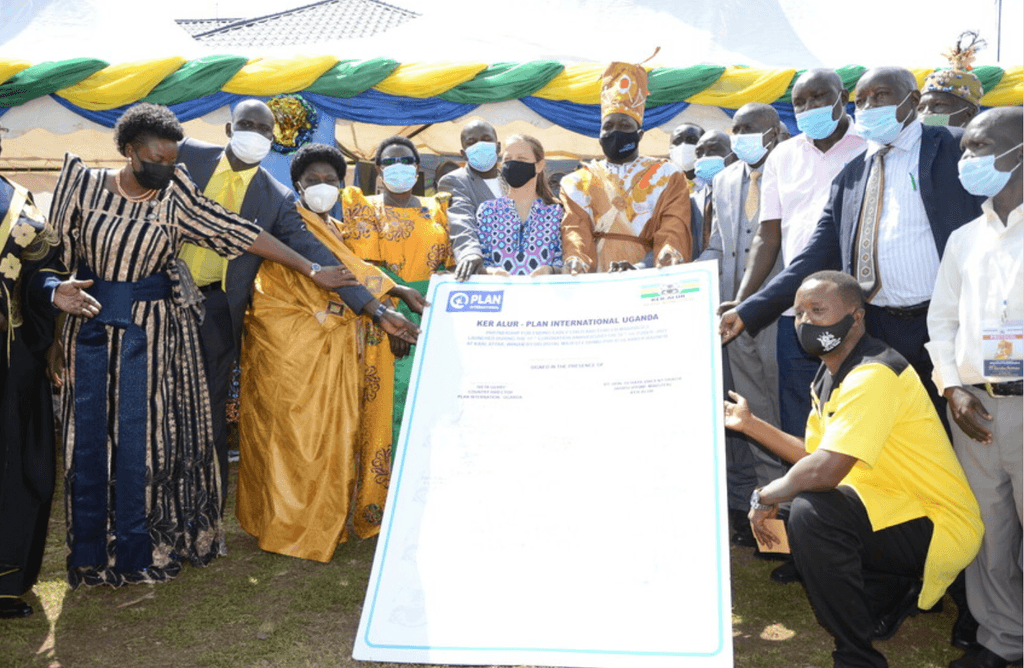Rewriting tradition to end child marriage in Uganda
In the heart of Uganda’s West Nile region, a powerful alliance is rewriting the future for adolescent girls. A cultural revolution to keep girls in school and out of early marriages.

During the coronation of the 11th King of Alur, His Highness Phillip Olarker Rauni III, a groundbreaking partnership was born—one that blends tradition with transformation.
Plan International Uganda and the Alur Kingdom joined forces to end child, early, and forced marriages in Zombo District and what was born was not just a campaign but a cultural shift.
Why this matters
Child marriage remains a critical issue in Uganda, especially in rural communities where poverty, gender inequality, and harmful social norms persist. In Zombo District alone, nearly half of all girls were married before the age of 18. But that’s changing.
Thanks to the NORAD-funded Girls Get Equal project, communities are now rallying around a shared goal: to keep girls in school, protect their rights, and empower them with the tools to shape their own futures.
Tradition as a tool for change
What makes this initiative unique is its deep respect for culture. Instead of working against traditional structures, Plan International is working with them—especially the influential Alur Kingdom.
Together, they’ve developed the Alur Customary Marriage Guidelines, a bold new framework that, among other guidelines, prohibits marriage under the age of 18, requires age verification before issuing marriage certificates and penalises forced and child marriages with fines and legal action.
These reforms are already making waves. In just a few years, child marriage rates in the Alur community have dropped from 44.94% to 32.97%.
Sparking conversations, building confidence
Ending child marriage isn’t just about saying “no” to early unions—it’s about saying “yes” to opportunity.
The Girls Get Equal project is doing just that by supporting girls to stay in school, with dropout rates among girls now lower than national averages. There’s also increased access to sexual and reproductive health education. The project also provides vocational training and economic opportunities, with over 63% of youth now earning an income. Even girls with disabilities are thriving: 86.67% of female youth with disabilities involved in the project are now employed or self-employed.
Beyond the classroom, such events like the Queen’s Cup football gala, community barazas, and radio talk shows are sparking conversations and building confidence, helping girls lead, speak out, and challenge the norms that once held them back.
Project in numbers (2020-2023)
- 👰♀️ Child marriage dropped from 44.9% to 33%
- 🧠 SRHR knowledge rose from 11.9% to 69.9%
- ♿ 57.4% of girls with disabilities now understand SRHR
- 💼 63.3% of youth are earning an income
- 🛡️ 93.3% of schools have child protection systems
- 🚨 700+ cases of abuse resolved or referred
- 👦🏽 Boys’ support for girls’ rights rose from 47.4% to 75.2%
Categories: Education, Sexual and reproductive health and rights


